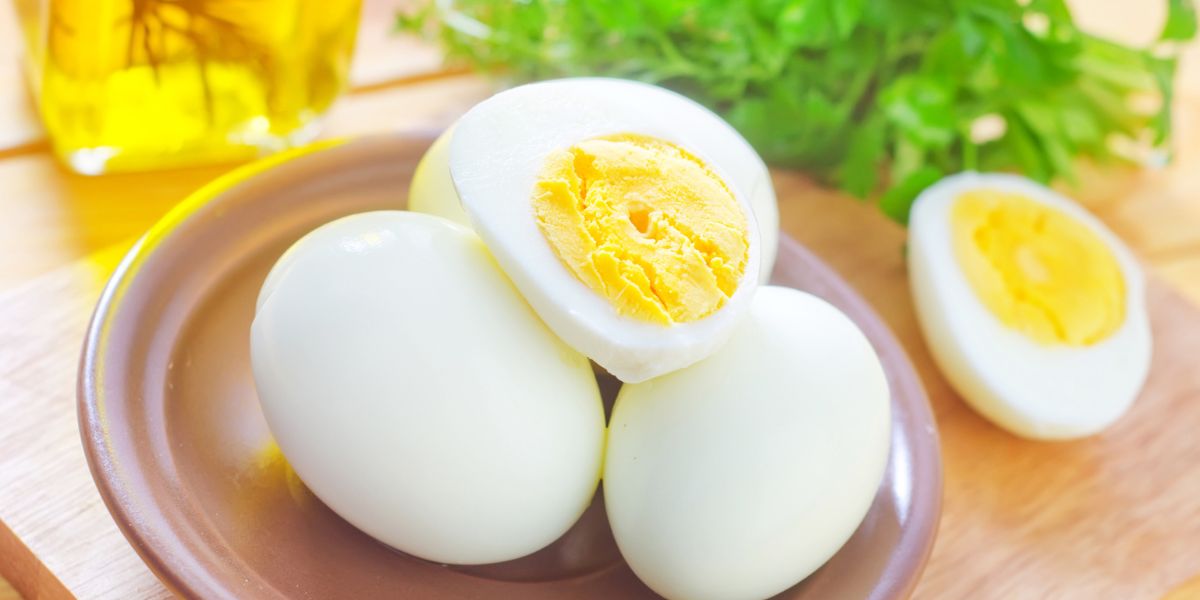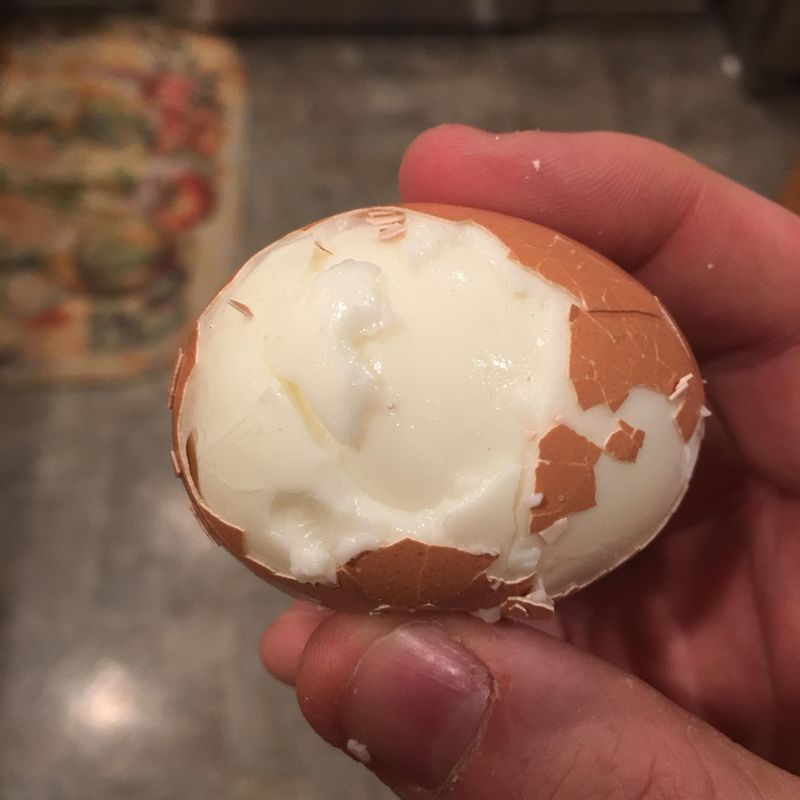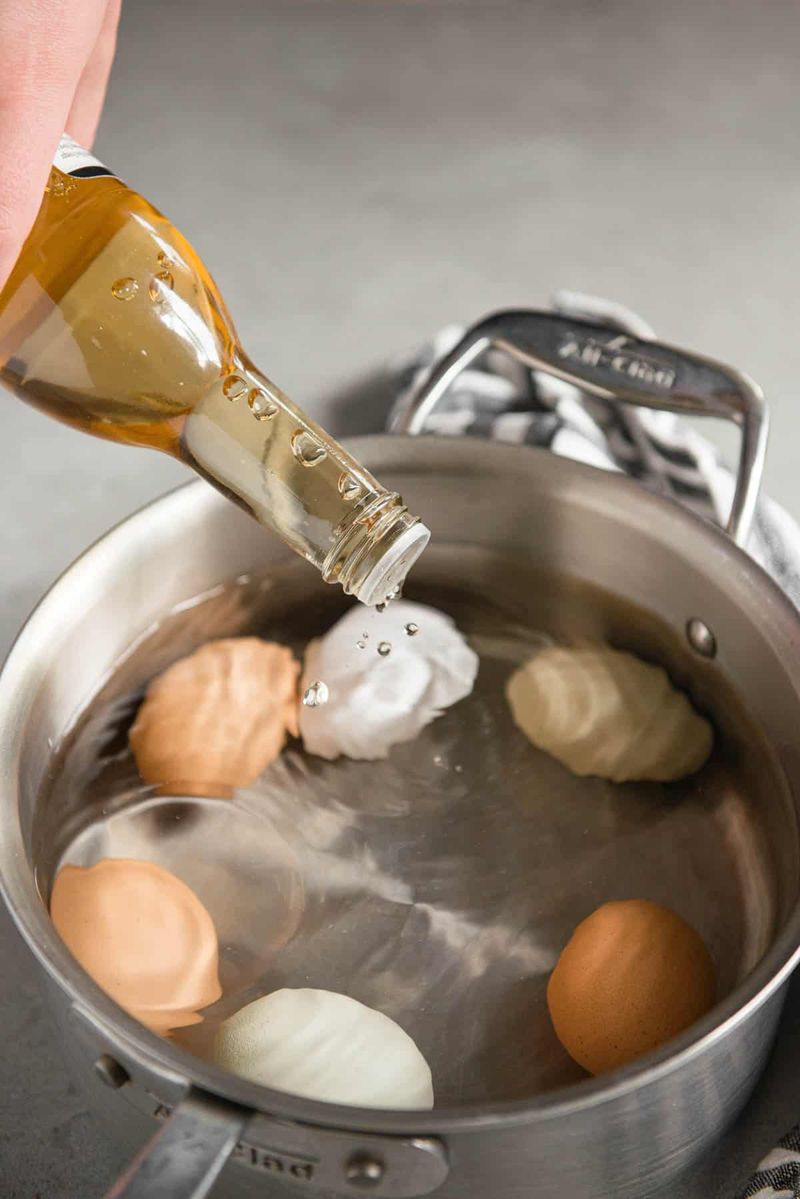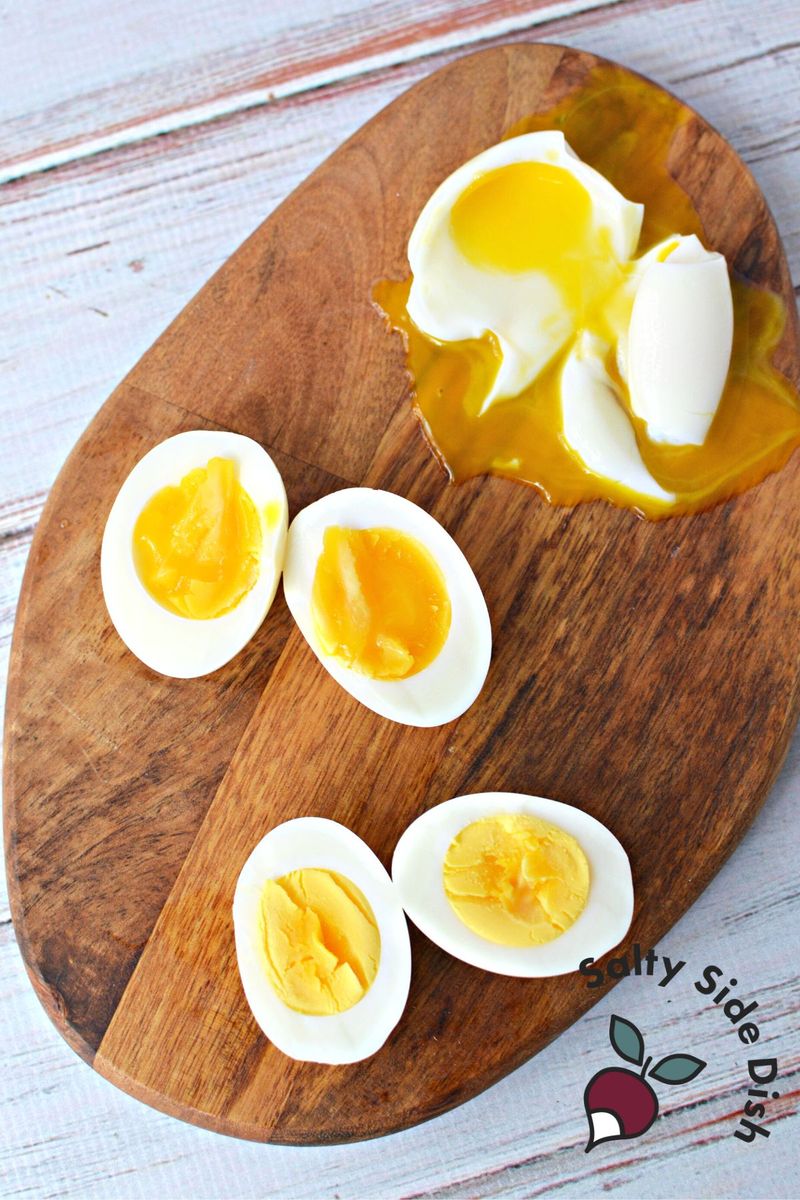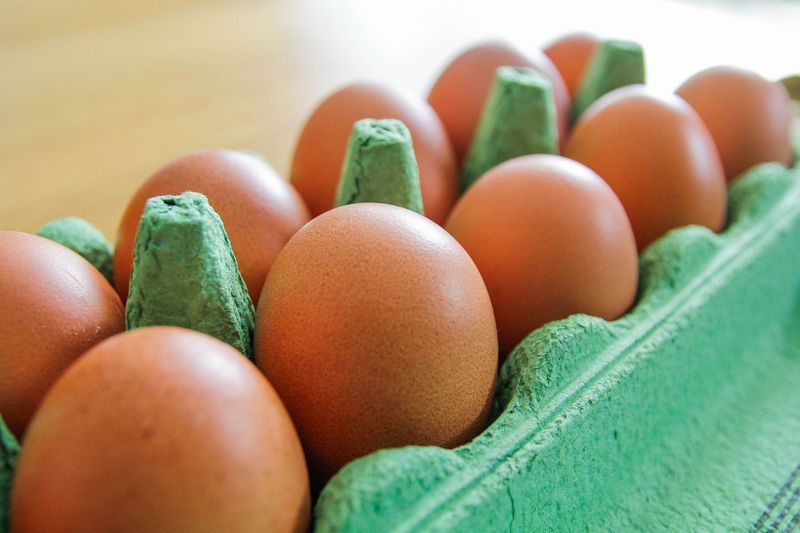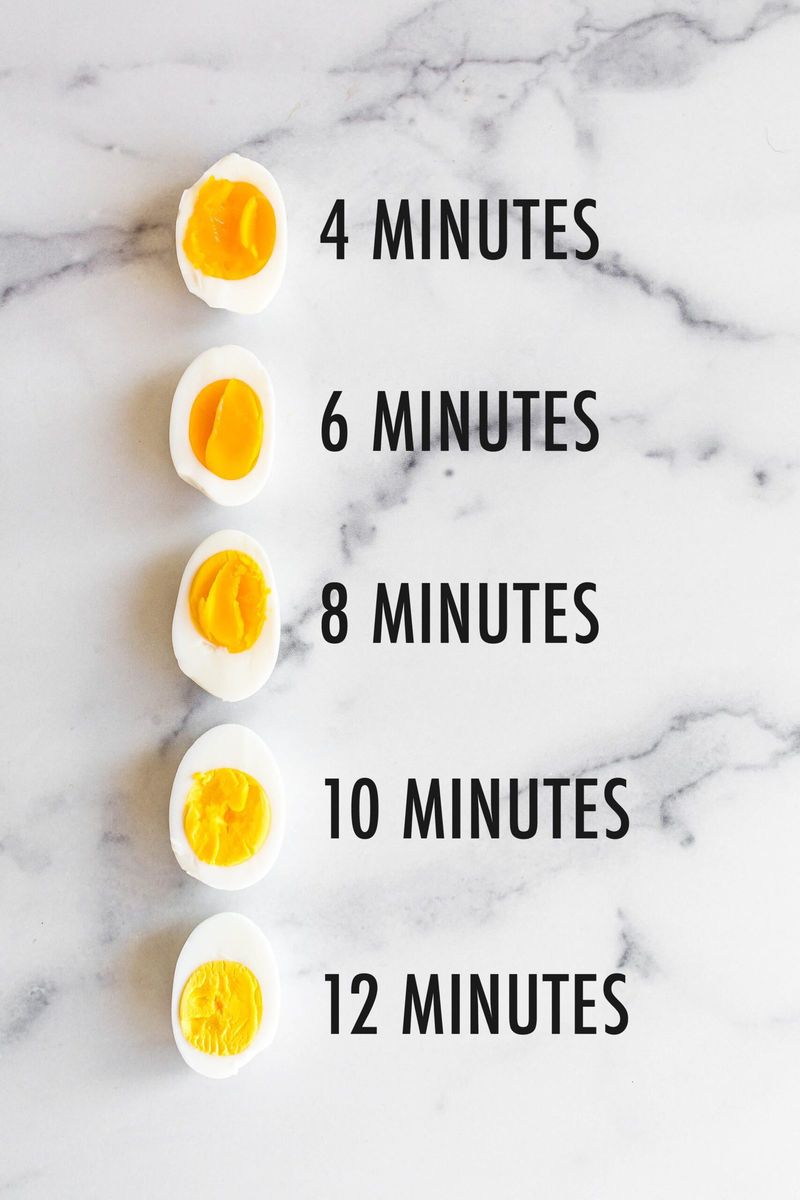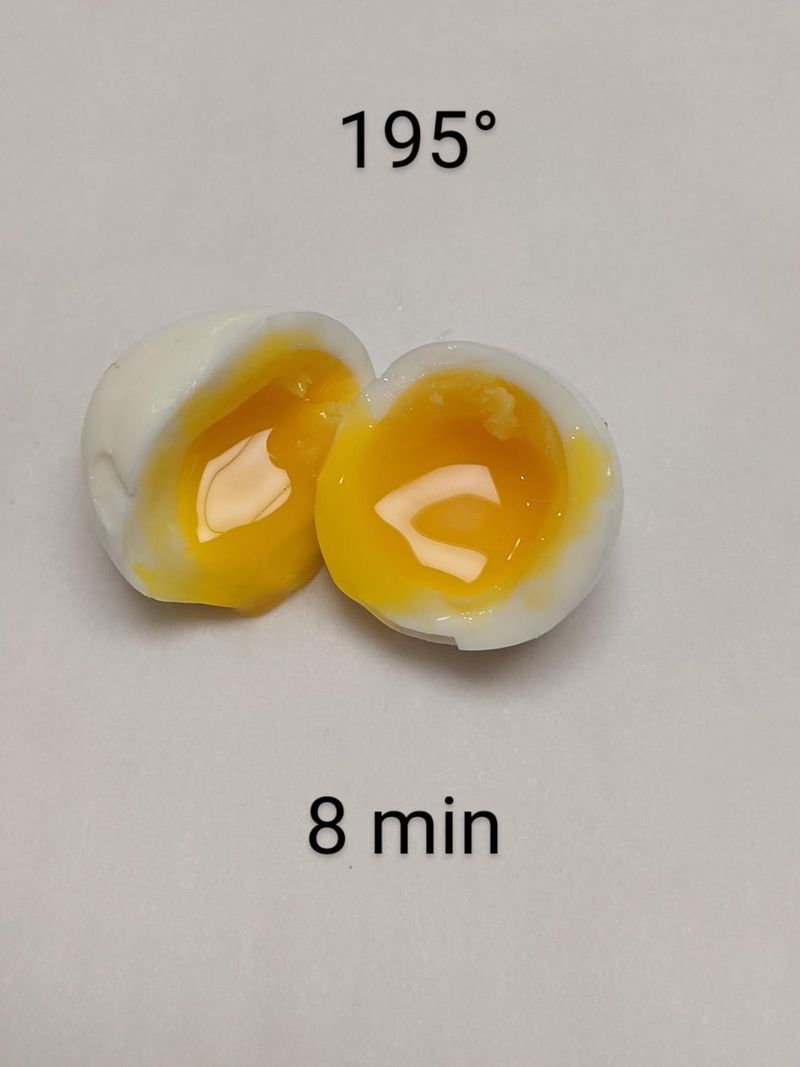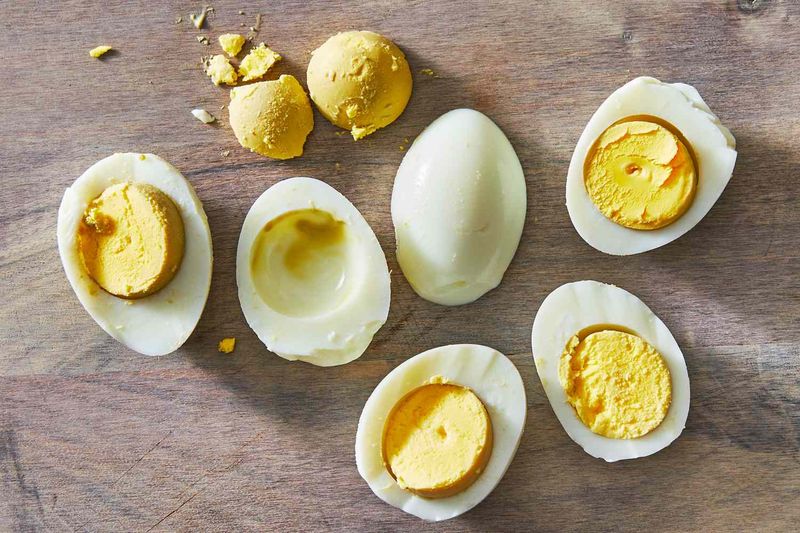Have you ever tried to hard boil a fresh egg, only to end up struggling with stubborn shells and uneven cooking?
While fresh eggs are prized for their rich flavor and impressive nutritional profile, they hold a secret that can make hard boiling more challenging than you’d expect.
In this article, we dive into the fascinating science and practical reasons why the freshest eggs might not be your best choice for perfect hard-boiled results.
Get ready to uncover surprising insights and expert tips that will revolutionize the way you cook eggs, ensuring flawless results every time. Let’s crack open the truth behind hard-boiling eggs and help you achieve the perfect peel with ease!
1. Peeling Difficulty
Fresh eggs are notorious for being difficult to peel after boiling. This struggle stems from the pH level of the egg white. Fresh eggs have a lower pH, making the whites adhere more to the inner shell membrane.
This results in a frustrating peeling experience. As eggs age, the pH level increases, causing the membrane to separate more easily from the white.
If you must boil fresh eggs, consider adding baking soda to the water. This can help raise the pH level, making the peeling process less cumbersome.
2. Vinegar Addition
Adding vinegar to boiling water is a common trick to ease peeling. The acidity in vinegar can help break down the egg’s shell, making it easier to peel.
However, this method is not foolproof for fresh eggs, as their membrane is still tightly bound to the white.
Experiment with different quantities of vinegar, but don’t expect miracles. Older eggs tend to respond better to this method, as their structural changes allow vinegar to work more effectively.
3. Egg White Firmness
The firmness of the egg white is another concern with fresh eggs. When boiled, fresh egg whites tend to be rubbery and less firm.
This can affect the texture and overall enjoyment of the egg. As eggs age, the proteins in the white change, resulting in a firmer and more appealing texture.
For better results, allow eggs to age a week or two. This aging process will enhance the texture, giving you a firm yet tender hard-boiled egg.
4. Aging Benefits
Aging eggs before boiling can transform your culinary experience. As eggs age, the air cell within enlarges, facilitating peeling and improving texture.
This aging process also influences the yolk’s firmness, making it creamier when boiled.
To achieve perfect results, plan ahead and refrigerate eggs for at least a week. While fresh eggs are tempting, patience pays off, rewarding you with beautifully boiled eggs that peel with ease and delight the palate.
5. Cooking Time Variance
Fresh eggs require precise timing to achieve the desired doneness. Slight variations in cooking time can lead to overcooked whites or undercooked yolks.
With older eggs, there’s a bit more leeway, allowing for a consistent result even with minor time errors.
Monitoring the cooking process closely is crucial when dealing with fresh eggs. Experimenting with different timings can help, but the consistent perfection seen with aged eggs is harder to achieve with fresh ones.
6. Temperature Sensitivity
Fresh eggs are more sensitive to temperature changes during boiling. This sensitivity can lead to uneven cooking, affecting both the texture and taste.
Older eggs withstand temperature variations better, providing a more uniform result.
For those using fresh eggs, maintaining a steady boiling temperature is key. Consider investing in a kitchen thermometer for precision. This tool ensures that the water stays at the optimal temperature, reducing the risk of uneven cooking.
7. Yolk Discoloration
A common issue with fresh eggs is yolk discoloration. The reaction between iron in the yolk and sulfur in the white causes a greenish layer to form around the yolk.
This discoloration is more prevalent in fresh eggs due to their composition.
To minimize this effect, ensure rapid cooling after boiling by placing eggs in ice water. This halts the chemical reaction, preserving the yolk’s natural color. Aging eggs also reduces this risk, as changes in composition over time lessen the reaction.
8. Storage Considerations
Proper storage plays a vital role in the quality of hard-boiled eggs. Fresh eggs stored in cold, consistent temperatures age more uniformly, improving their boiling performance.
A week or two in the fridge allows the eggs to reach ideal conditions for boiling.
Keeping track of storage times helps in planning when to boil. Label cartons with purchase dates to manage aging effectively. This attention to detail ensures you always have eggs at their peak for boiling, enhancing your culinary efforts.
